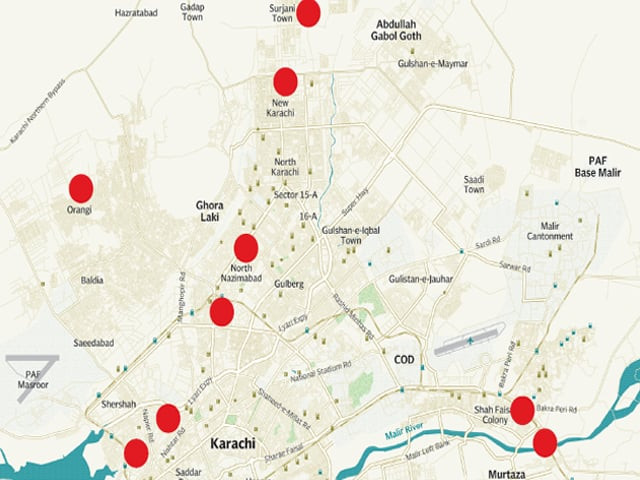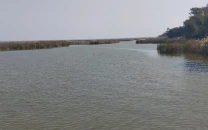In a city where 40 people fight for 1 seat, mass transit is the solution
Out of the millions of vehicles chugging along Karachi’s streets, only six per cent qualify as public transport.

Baig, along with other experts at a seminar on Sunday, talked about how a mass transit system is the only solution to the city’s transport problems. The roads in the city are wide enough, especially when compared to those in developed countries such as London, but a dire lack of traffic management and absence of mass transit makes commuting an agonising daily ordeal.
Every day hundreds of new cars are registered and as the population rises. The solution is a system in which a single vehicle carries more people, as in the case of a rail or bus-based system.
The seminar was held to discuss the Karachi Transportation Improvement Project (KTIP) study, which the CDGK and the Japan International Cooperation Agency (Jica) started in October, 2009. Jica is funding the study with a grant of Rs350 million and by now, around 60 per cent of the work has been done. It aims to identify the problems in the public transportation system and then suggest the most appropriate system.
The study’s recommendations would start being implemented by July 2012. Its conclusions and proposals would be valid till 2030 - a rather ambitious aim.
One expert criticised the signal-free corridors and fly-overs, saying that it has hurt people’s businesses and the environment at large. Moreover, the authorities used private land to build these networks and in most cases, they gave no compensation.
Environmental Management Consultants Managing Consultant Syed Nadeem Arif discussed the social and environmental issues caused by what he said was “the absence of a mass transit system”.
There are several options when it comes to mass transit and the study would help to identify, keeping in mind old and new plans, which would be the most feasible one for the city. Options include the Light Rail Transit System (LRTS), the Metro Rail Transit System (MRTS) and the Bus Rapid Transit System (BRTS).
Right now public transport is so inadequate that there are always 40 people fighting for a single seat, Arif said.
Not everyone, of course, is optimistic about mass transit. A police official, contacted for comment, said that the transportation problems include the lack of proper, general bus stands. He blamed the CDGK. He also felt that a mass transit system was “too ambitious” and that he doubted it would be valid until 2030.
Twenty-four Japanese experts are working under the study along with local counterparts. The first stage of identifying problems and carrying out surveys would be completed by June and a final report would be presented. Its second stage of carrying out a feasibility study on the “prioritised mass transit corridor” would then end around April 2012.
Published in The Express Tribune, February 28th, 2011.



















COMMENTS
Comments are moderated and generally will be posted if they are on-topic and not abusive.
For more information, please see our Comments FAQ